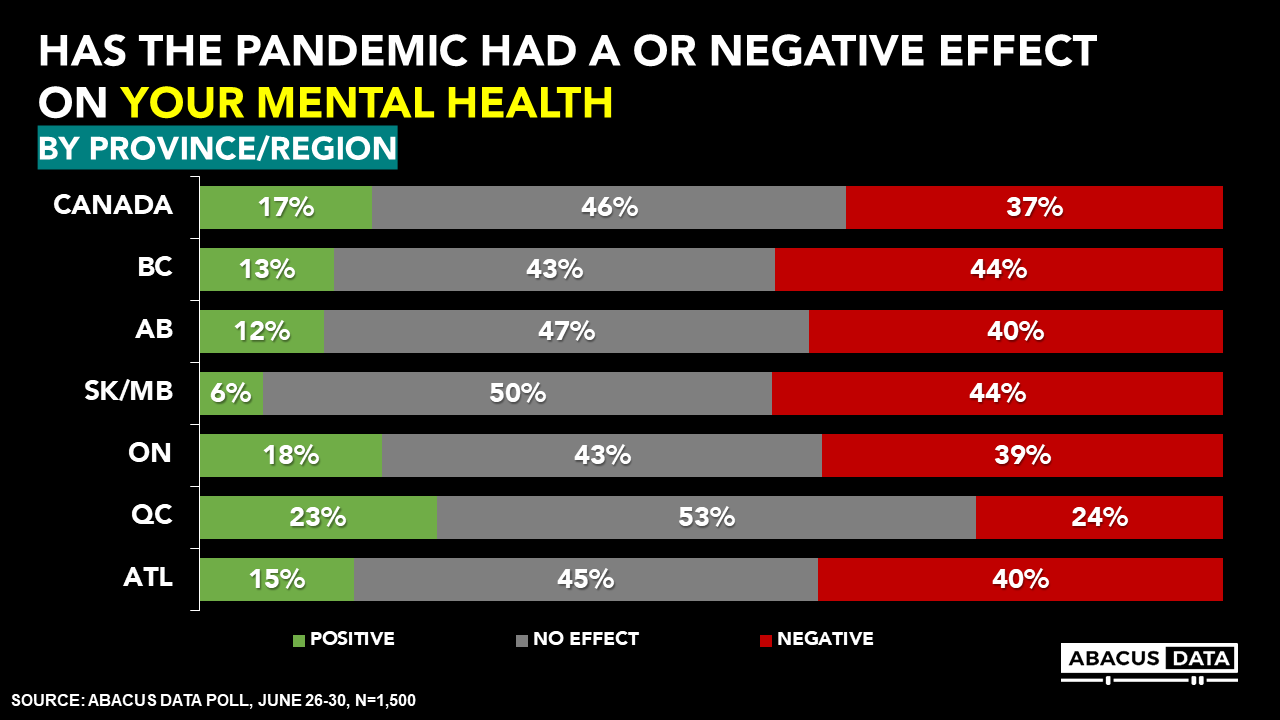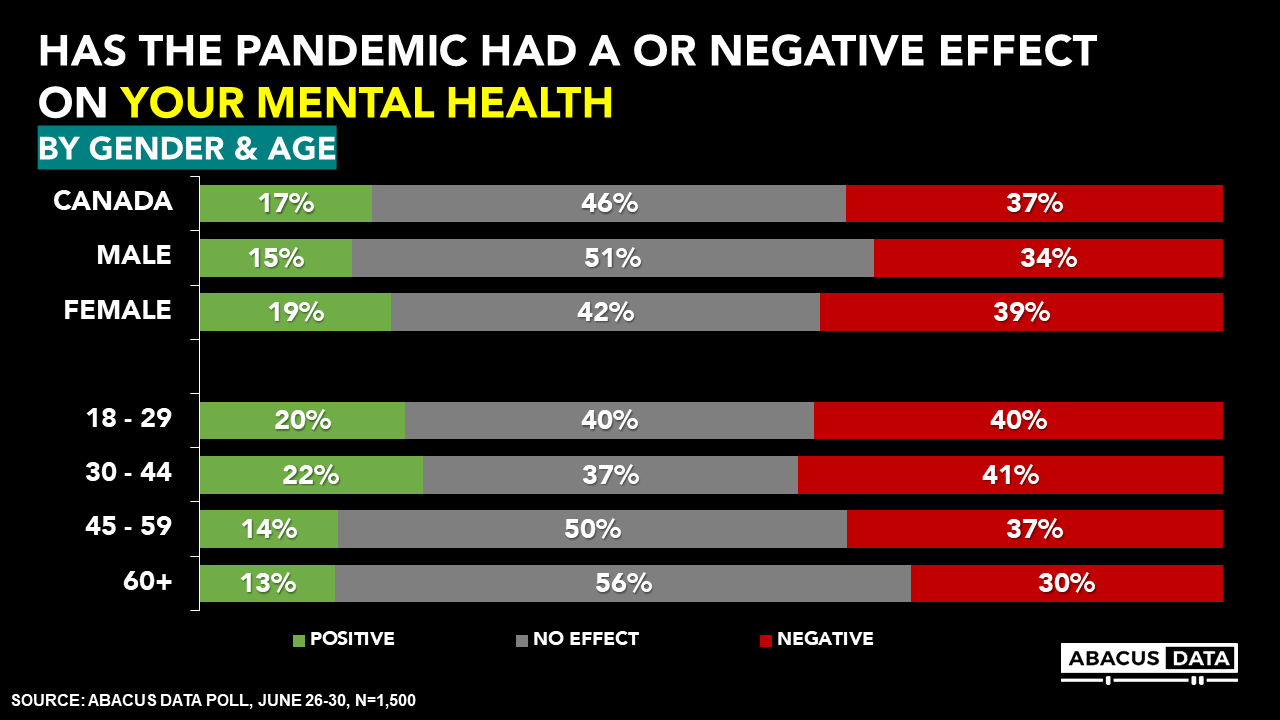COVID-19: Almost as many feel mental health impacts as feel financial woes.
July 9, 2020
In our last national survey, we asked Canadians to what extent the pandemic has impacted different aspects of their lives.
Here’s what we found:
Almost as many Canadians report the pandemic has had a negative impact on their mental health as those who say it has had a negative impact on their financial well-being. 40% say the pandemic has had a negative impact on their finances compared with 37% who say the pandemic has negatively impacted their mental health.

31% report negative impacts on their physical fitness. In contrast, 53% report positive impacts on their appreciation of nature – birds, hiking, gardening, etc.
40% Canadians say that the Covid-19 pandemic has had a negative effect on their financial well-being, while 15% say there has been a positive effect and 45% say they do not see any real effect. Women are slightly more likely (+3) more likely than men to say their financial well being has been harmed. Financial harm is more prevalent west of Quebec and less common in Quebec and Atlantic Canada.


Those in households making less than $50,000 a year are 13-points more likely to report negative impacts on their financial well-being than those earning more than $100,000.

Almost as many (37%) say the pandemic has had a negative effect on their mental health, while 17% a positive impact Those under 45 are more likely than those over that age to cite mental health drawbacks. Quebecers are well under the national average in terms of citing mental health impacts, with 24% saying they feel a positive impact and 24% negative


Three out of ten (31%) say their physical fitness has suffered, while 23% say their fitness has improved. Among those under 30, as many say their fitness has improved as saying it has deteriorated. Among those 60 and older, people are two times more likely to say their fitness has deteriorated as improved.

On the positive side of things, 53% say living through the pandemic has had a positive effect on their appreciation of nature, while 4% say it has had the opposite effect. Women are 14-points more likely than men to feel this way, and those under 30 are considerably more likely to feel this way compared to those over 60.

UPSHOT
Millions of Canadians are feeling financial and mental health challenges from the Covid-19 pandemic. One in ten (9%) say the financial impact has been very negative, which equates to almost 3 million people. Almost as many (7%) report very negative mental health impacts and those under 30 are twice as likely to say this.
The impact on physical fitness is less pronounced, but still, on the whole, a negative impact. If there is a bright side, it’s that many people find themselves in a circumstance where they can appreciate nature more than before.
ABOUT ABACUS DATA
We are the only research and strategy firm that helps organizations respond to the disruptive risks and opportunities in a world where demographics and technology are changing more quickly than ever.
Find out more about what we are doing to help clients respond to the COVID-19 pandemic.
We are an innovative, fast-growing public opinion and marketing research consultancy. We use the latest technology, sound science, and deep experience to generate top-flight research-based advice to our clients. We offer global research capacity with a strong focus on customer service, attention to detail and exceptional value.
We were one of the most accurate pollsters conducting research during the 2019 Canadian Election.

Contact us with any questions.
Find out more about how we can help your organization by downloading our corporate profile and service offering.
METHODOLOGY
The survey was conducted with 1,500 Canadian residents from June 26 t0 30, 2020. A random sample of panelists were invited to complete the survey from a set of partner panels based on the Lucid exchange platform. These partners are typically double opt-in survey panels, blended to manage out potential skews in the data from a single source.
The margin of error for a comparable probability-based random sample of the same size is +/- 2.8%, 19 times out of 20.
The data were weighted according to census data to ensure that the sample matched Canada’s population according to age, gender, educational attainment, and region. Totals may not add up to 100 due to rounding.




